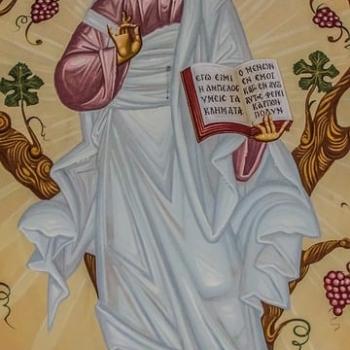
The Bible contradicts itself. So is the claim of many atheists and agnostics. While most of these charges stem from ignorance of Scripture or simply efforts to discredit biblical religion, even Christians can be occasionally confused by what appear to be discrepancies in the text.
So, while it is tempting to dismiss the claims of contradictions as the usual ramblings of atheists, any contradictions, or at least any significant contradictions, could have immense implications on Catholicism.
In this paper, I will discuss what exactly a contradiction entails and examine a number of so-called contradictions. But first, it may be beneficial to provide a brief overview of what the Bible is.
The Bible As A Library
The Bible is not a single book. Rather, it is a collection of seventy-three books. These books were written over the period of approximately two thousand years, by as many as forty authors and contain as many as seven different genres.
Viewing the Bible as a library of seventy-three books requires that one utilize proper exegesis (an objective and critical examination of the text). Additionally, correctly understanding the text requires the reader to be aware of the various “senses” utilized in the Bible.
The first sense is a literal interpretation. As the name indicates, a literal interpretation entails a “plain reading” of the text. The literal interpretation makes the other three senses possible, providing the data necessary to understand Scripture.
The moral method or sense seeks to glean ethical and moral teachings from the text. These moral teaching can then be applied to the individual’s life and experience.
The third sense interprets the text symbolically. Since this sense involves frequent and extended use of metaphors, it is also called the allegorical sense.
The last sense is anagogical. Put simply; the anagogical sense interprets the Bible in light of the last book, the book of Revelation. In this way, the anagogical sense provides a spiritual interpretation of Scripture.
The purpose of providing the above framework is to underscore the complexity of biblical interpretation. Without such an appreciation of Scripture, one cannot claim that there are contradictions in the Bible.
What Is A Contradiction?
Very often, the term contradiction is used loosely. That is to say that in everyday language, contradiction is used to mean almost any type of disagreement or opposition. Yet, to make a serious and critical analysis of the biblical text, we must be clear about what we mean by contradictions.
In logic, the term contradiction means the objective relation between two propositions that cannot both be true at the same time and cannot be false at the same time. This means that a contradiction can only occur when the truth of one statement entails the falsity of the other statement. And this can only occur when the two propositions have the same subject and predicate but differ in both quantity and quality. For example, if all cats are animals, it is a contradiction to state that some cats are not animals. If no cats are animals, the contradictory proposition would be that some cats are animals.
Having detoured into the realm of traditional logic, I can now proceed to examine alleged contradictions in Scripture.
Addressing The “Contradictions” in Scripture
Owing to space limitations, I will seek to address only the most prominent of the alleged contradictions.
The first potential contradiction involves the creation narratives in the book of Genesis. As everyone who has read Genesis knows, there are two distinct creation stories. Two potential contradictions occur in the creation stories. The first one occurs regarding the “order of creation.” The first narrative states that animals were created before humans, but chapter two says that humans existed before the animals were created. The second contradiction involves when light was created. In one depiction, light is created on the first day, and in the second depiction, light is created on the fourth day.
To adequately address this problem, we must determine the author’s intent and emphasis. In the first creation story, the author emphasizes the sequence of events. In the second story, the emphasis is on the origin of human beings. Said differently, the narrative on the creation of man in Genesis Two is intended to supplement Genesis One. Genesis One relates the creation of creatures in order of time, whereas Genesis Two relates them in order of significance. Human beings were the last creature to be created, but he is the creature that is to have dominion (care for) all the other creatures. (See Warkulwiz, Fr Victor. The Doctrines of Genesis 1-11. 2007). If the text is understood in this light, there is no contradiction between the two creation stories.
The second alleged contradiction involves the birth of Jesus. Specifically, the alleged contradiction occurs in differing accounts of Jesus’ birth in Luke’s and Matthew’s Gospels.
In Luke 2:39, we read, “When they [the Holy family] had fulfilled all the prescriptions of the law of the Lord, they returned to Galilee, to their own town of Nazareth.” However, Matthew’s Gospel suggests that the Holy family went to Egypt before returning to Nazareth. (See Matthew 2:21-23).
The first thing to note is that this is not so much a contradiction as an omission. Luke’s Gospel does not indicate that the Holy family did not go to Egypt; the text is simply silent on the event. Similarly, Matthew’s Gospel makes no mention of the shepherds of the nativity. To paraphrase A Man for All Season, silence betokens nothing. Like in the creation accounts, the authors emphasize different aspects of the same series of events.
The next alleged contradiction is a favorite of atheists. It revolves around the permanence of the earth. According to Ecclesiastes 1:4, “One generation departs, and another generation comes, but the world forever stays.” Yet, 2 Peter 3:10 claims, “The day of the Lord will come like a thief, and then the heavens will pass away with a mighty roar and the elements will be dissolved by fire, and the earth and everything done on it will be burned up.”
It certainly seems like Ecclesiastes 1:4 and 2 Peter 3:10 contradict each other. This apparent contradiction is solved when one understands that the Hebrew word “forever” often indicates a long time. It does not necessarily indicate eternity. This is similar to how forever is used in English. Frequently, forever is used to indicate a long time, not an eternity. However, the text in 2 Peter 3:10 is eschatological in nature. Therefore, it is intended to indicate the end of the world.
The last “contradiction” I will address involves whether any human being has seen God “face to face.” While several verses about this alleged contradiction can be discussed, I will limit myself to Genesis 32:31 and John 1:18. In the first passage, Jacob claims to have seen God face to face. Yet, in John 1:18, Jesus states that no one has ever seen God. The texts seemly contradict each other. Additionally, one is struck by a dilemma. If Jesus is God (as He claimed) and human beings saw Jesus, how can Jesus claim that no one has seen God?
Saint Paul sheds some light on the issue. In 1 Corinthians 13:12, Paul writes, “For now we see [God] through a glass, darkly; but then face to face.” To see God, as Jacob describes, is to see a manifestation of God, to “see through a glass darkly.” However, what Jesus speaks of is to see the Triune God as He is, in His essence. This can only occur in the beatific vision; that is, one can only truly see (i.e., know) God in Heaven.
Conclusion
Owing to the various genres and languages, the Bible can be complicated to read and understand. This complexity has made it an easy target for atheists unwilling to engage the text intelligently. The result of this has been claims that the Bible contradicts itself. In this paper, I have sought to address some of these alleged contradictions, hoping to alleviate the confusion surrounding the most important library in history.













